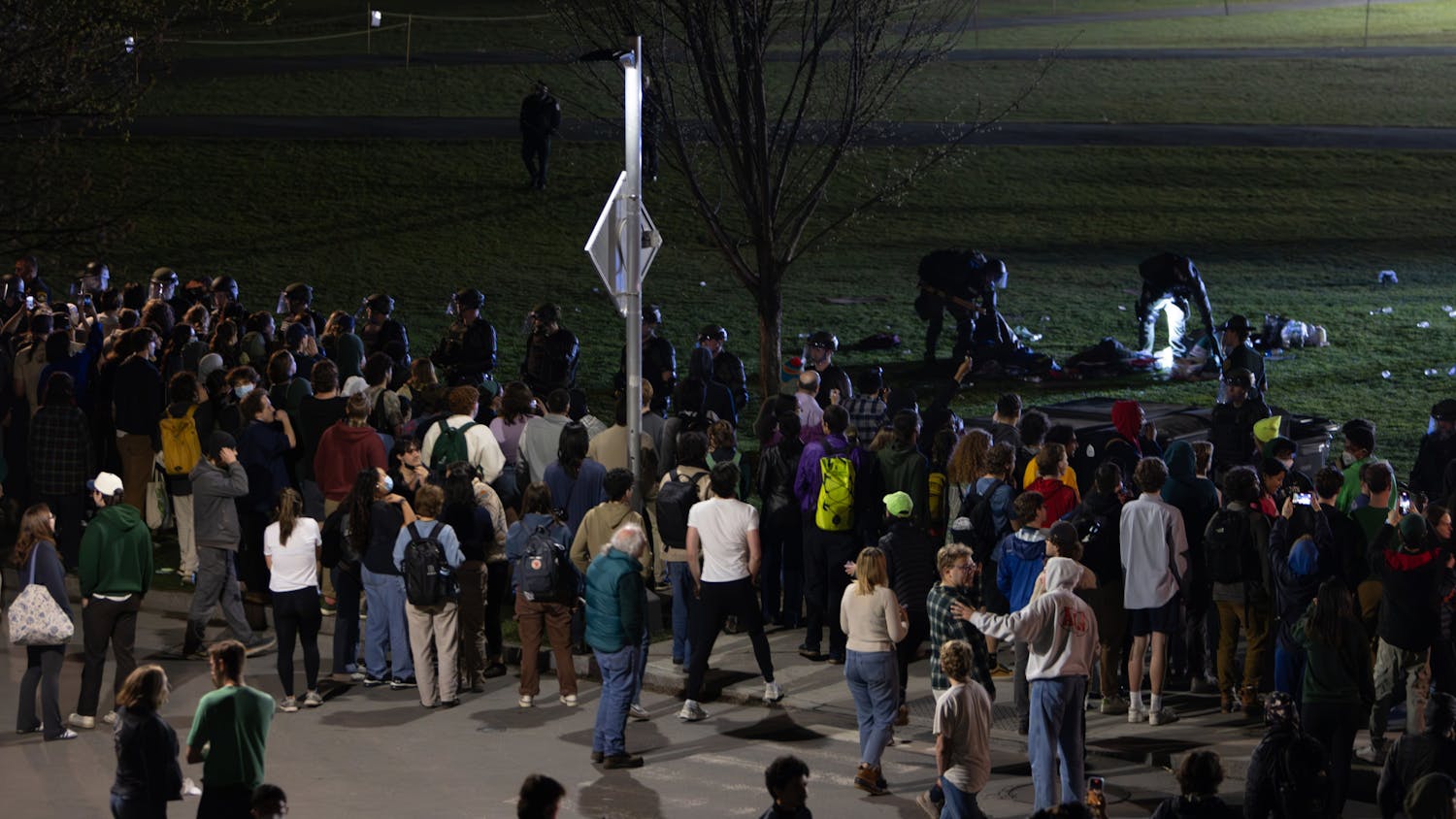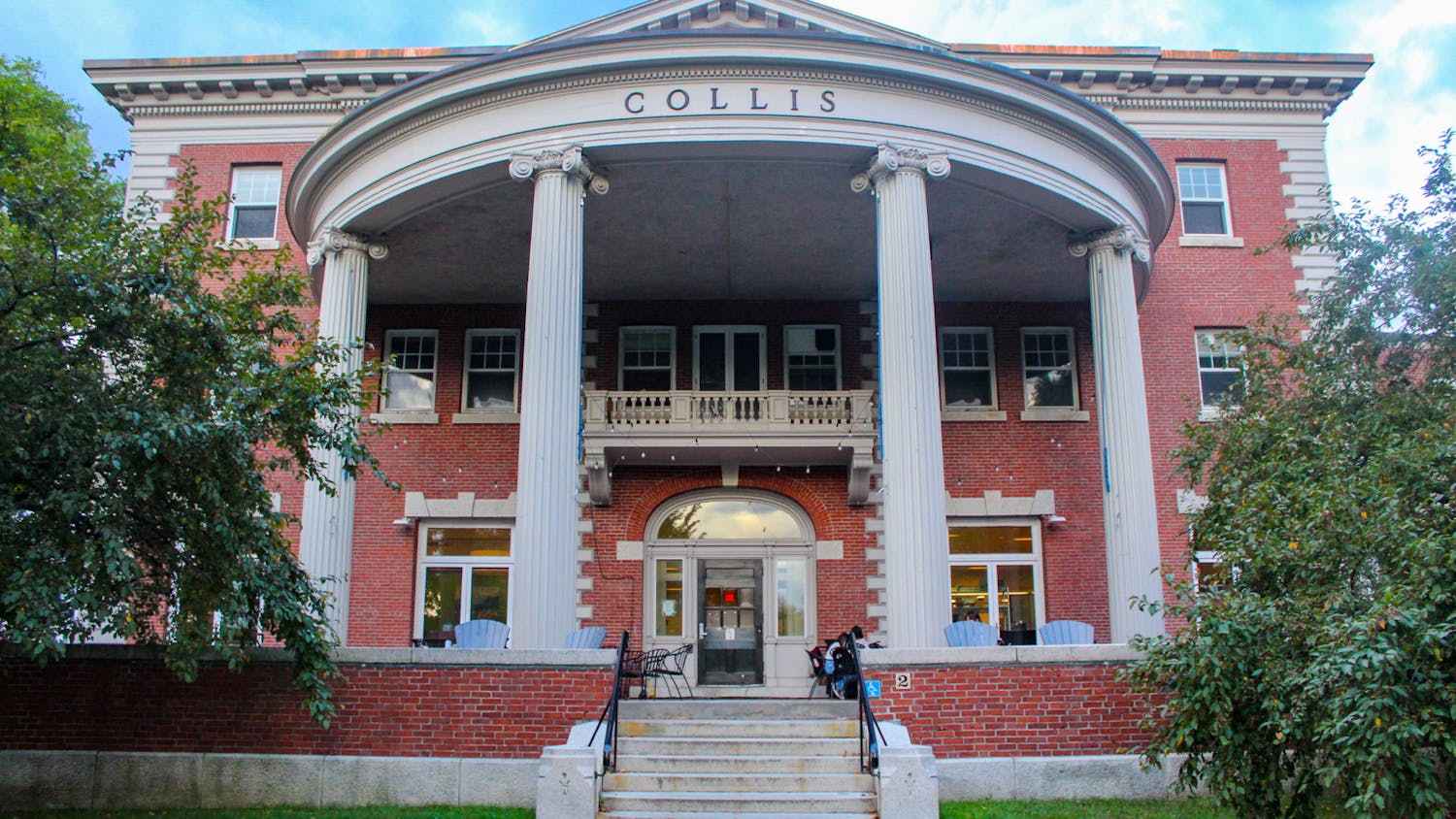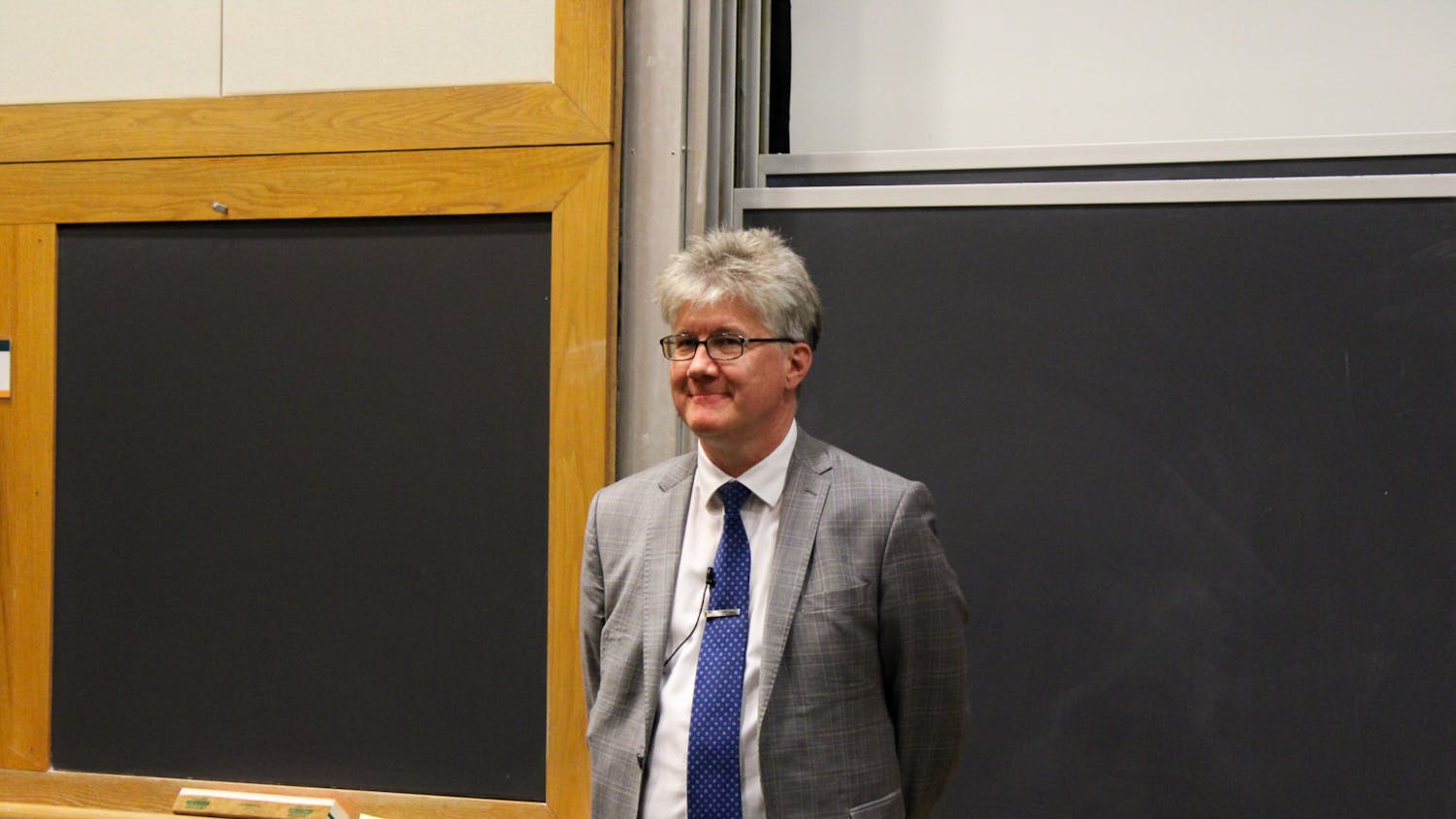Nearly 200 members of the Dartmouth community gathered in the Roth Center for Jewish Life last night to listen to a 13-member panel of campus leaders and faculty members discuss racism at the College in the wake of the racial slur found on the door of a Channing Cox apartment last week.
Last Tuesday, a Star of David and the words "Death to You" were discovered on the door of an apartment housing four women -- three of whom identify themselves as being Jewish.
At the beginning of the discussion, Associate Dean of the College Dan Nelson said neither Safety and Security nor the Hanover Police have discovered any information about the identity of the perpetrator in their investigations into the incident.
Nelson called the racial slurs "very serious and utterly reprehensible" and added that the two main concerns were for the well-being of the students and "letting the community know better."
He criticized passivity and lack of involvement and said that it was necessary to actively take a stand not only against issues or behavior, but for them -- in this case for human values.
Hillel President David Levi '00 said the incident should serve as a "rude awakening." He said that although hatred of Jews is a taboo, "it is still here and will continue to manifest itself."
He spoke of the importance of taking on responsibility as an individual and of showing unity and strength in the Dartmouth community. Levi said the students should not feel threatened by the racist incidents, but should instead strive toward more understanding in a unified Dartmouth.
"Crimes of hate affect us all," he added.
Marene Jennings '98, president of the Afro-American Society, said that in her experience, racially motivated crimes happened on a regular basis.
Jennings said the main problem was the lack of minority interaction which led to segregation and fragmentation. She said everyone should make an effort to change the climate of the campus.
Student Assembly President Frode Eilertsen '99 said only certain people make the effort to discuss issues of racism.
"Most of the people who are here are probably not the ones who should be here," he said.
He challenged the audience to change the campus, starting with self-education. "Let's go out and change this campus because we can do it," he said.
The audience then broke up into small groups to discuss productive ways of countering the problem of hate. The panelists asked the audience to debate whether there was something specific to the Dartmouth community that was conducive to an atmosphere of hate.
After the discussions, representatives from the respective groups presented their suggestions. Several recurring ideas were voiced by almost all the groups.
Challenging assumptions was described as a way of counteracting insidious hate. One panelist said that as it was possible to spend four years at Dartmouth without challenging oneself, it was necessary to use institutional and administrative advantages.
Many groups proposed events such as dances or dinners between different student organizations and others suggested introducing a new type of mandatory course dealing with issues of difference in race, gender, sexual orientation and culture.
"This would force those people who don't want to face difference to deal with diversity," said one member of the audience, adding that required courses would lead to more open-mindedness.
Members of the audience said they felt the act last week was not committed out of ignorance. One member said "anti-semitism does not simply belong to uneducated people."
One panelist criticized the Greek system, saying it has a tendency to shut off individuals from the rest of campus. The panelist suggested joint activities between fraternities and ethnic affinity groups.
Pan-Asian Council Representative Rachel Kim '98 called forth spontaneous applause when she said, "It is always the burden of the minority to integrate into the mainstream, rather than that of the mainstream to integrate into the fringes."
Members of the audience suggested that tours of affinity houses, such as Hillel, be included in freshman orientation. Levi said he did not want students to feel they were unwelcome simply because they did not belong to a minority.
One student mentioned the possibility of requiring prospective students to address diversity as part of their application.
Toward the end of the discussion, Candace Crawford '98 spoke passionately about her dissatisfaction with students who complained about the lack of opportunities to mingle and interact.
"I challenge all of you to get out and do something," she said. She spoke of the necessity to look beyond grade point averages and exams to become more involved. Some students, she said, work incredibly hard to discuss and work on issues of diversity or hate, while others are focused solely on academics.



